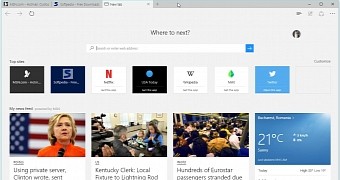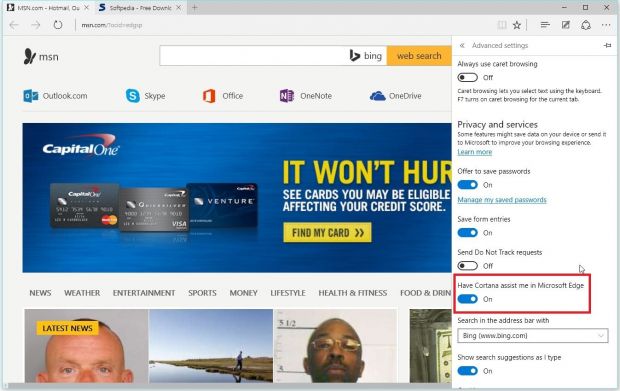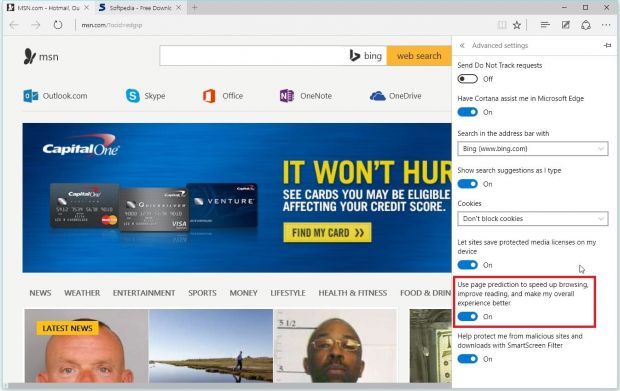Windows 10 has dragged Microsoft into one of the worst privacy scandals in the last couple of years, as the default settings that come with the operating system automatically collect user data and send it to the company.
Microsoft Edge, the new browser that replaces Internet Explorer as the default option in Windows 10, does that too, and although settings to block this data collection are indeed being offered, many users might not be aware that their browsing history is tracked and then sent to the software giant.
So basically, every single website that you visit is logged, and once you end a browsing session, this log is automatically submitted to Microsoft. Obviously, Redmond says that this information is encrypted and is only used to improve its services, such as Cortana and other browser features, but we all know what that actually means.
For privacy advocates, having browsing data collected and submitted to a third party is a nightmare, but the biggest problem isn't necessary the feature itself, but the fact that, unless you read the tens of pages of privacy terms, you're not aware of the features that might be running on your PC to gather this information.
Identifying the cause
First and foremost, we need to identify why browsing data is collected in Microsoft Edge.
If we are to trust Microsoft's documents, it's because of Cortana and page prediction features.
The former is supposed to assist you as you browse the web, so it's pretty clear why it needs to look into your browsing history (but it's not so clear why it has to send it to Microsoft, while the latter can predict your next page and pre-load it for faster browsing. Again, it's hard to find a reason why this data isn't processed locally and is submitted to Microsoft.
Microsoft's explanation for Cortana:
“If you’re using Cortana with Microsoft Edge, your browsing history will be sent to Microsoft to help Cortana personalize your experience. If you don’t want your browsing history sent to Microsoft for personalization you can turn off the Have Cortana assist me in Microsoft Edge setting.”
And the official explanation for page prediction:
“If the Use page prediction setting is on, it sends your browsing history to Microsoft, uses aggregated browsing history data to predict which pages you're likely to browse to next, and then loads those pages in the background for a faster browsing experience.”
How to block Edge from sending browsing history to Microsoft
Basically, you can block the browser from sending your history to Microsoft by simply disabling the aforementioned two features from the settings screen. But there's no guarantee that there's no background process that continues to do that, as previous reports have demonstrated that Windows 10 keeps phoning home even when asked not to.
Disable Cortana in Microsoft Edge
Microsoft Edge > Settings > Advanced settings > Privacy and services > Disable “Have Cortana assist me in Microsoft Edge”
Disable page prediction in Microsoft Edge
Microsoft Edge > Settings > Advanced settings > Privacy and services > Disable “Use page prediction to speed up browsing, improve reading, and make my overall experience better”
More information about how privacy advocates see Microsoft's new Windows 10 data tracking features is available here. Additionally, here's the official Windows 10 privacy policy on Microsoft's website.

 14 DAY TRIAL //
14 DAY TRIAL // 



